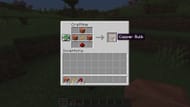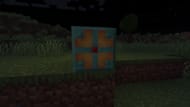Minecraft 1.21 may not have arrived quite yet, but players are getting their first look at its new blocks and features thanks to recently released Java Snapshots and Bedrock Previews. Among the many new additions is the copper bulb, a light source that players can craft. It can also be found within trial chamber structures.
Contrary to initial perceptions, there is a little more going on with copper bulbs in Minecraft. Since this is the case, it may be worth examining this new block from top to bottom so that players are fully prepared to utilize it when it is fully implemented in the 1.21 update.
What to know about the copper bulb in Minecraft 1.21 and its betas
Crafting recipe

Chart New Territories with the ultimate Minecraft Seed Generator!
To create a single copper bulb in Minecraft, players will need three copper blocks (oxidized or not; either option works), a blaze rod, and a piece of redstone dust. Depending on the copper blocks used, players will receive a copper bulb or an oxidized copper bulb.
The blaze rod should be placed in the center slot of a crafting table grid, with the redstone dust beneath it. Lastly, players should place their three copper blocks above and to the left and right of the blaze rod.
Uses of copper bulbs

As previously noted, Minecraft's copper bulbs are primarily used as a light source, so they're effective at keeping hostile mobs from spawning and bringing illumination and decoration to player builds. However, it should be noted that as copper-based blocks, bulbs are prone to oxidation when exposed to open air, turning from orange to green over time.
Additionally, as copper bulbs oxidize, they lose the light they generate. Although a fully oxidized copper bulb will still generate light, it will be much less effective than its pristine counterpart.
This can be addressed in two ways. Players can use an axe on the block to chip away the oxidization, or they can apply a honeycomb to a copper bulb to prevent it from degrading, locking its current light level in place.

In addition to their abilities as a light source and building/decorative block, copper bulbs also have a solid degree of redstone functionality. They will turn on or off each time they are supplied with a redstone signal. Although this is necessary to use them as lighting, copper bulbs can also serve as a "T flip-flop" apparatus and can interact with redstone comparators.
As a T flip-flop, copper bulbs can be implemented into devices like redstone clocks or binary counters as they effectively release one redstone signal (while turning on/off) for every two signals received.
It should be only a matter of time before Minecraft's redstone engineers come up with some pretty appealing applications using this block in more complicated machinery.
Uncover new worlds with our Minecraft Seed Generator!

